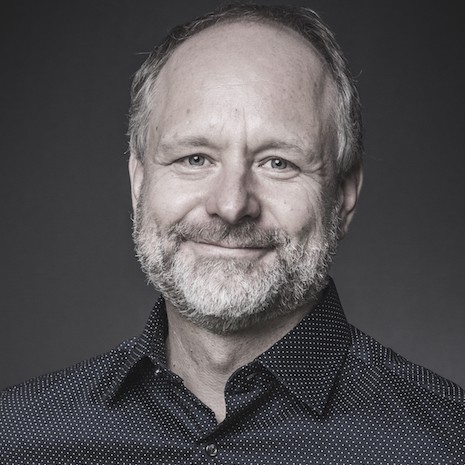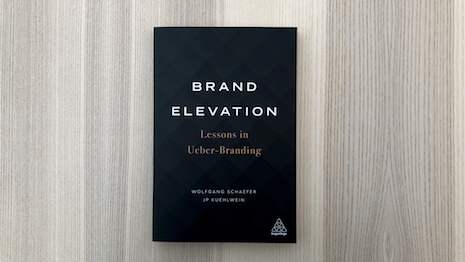By Wolf Schaefer and JP Kuehlwein
The new millennium has brought a major shift to the world of brand building.
Brands, especially prestige or luxury brands, or those we call “Ueber-Brands,” are no longer seen as mere marketing instruments – they are embraced as guiding the enterprise overall. No longer just attracting consumers, but inspiring and engaging all stakeholders inside the company and out.
How did this happen? Well, there are two big drivers that pushed this – and are still at work:
- Technology. Digitization has brought transparency and accessibility. The first forces brands and companies to practice what they preach. The second empowers and commands direct brand-consumer interaction. Together, they have made the brand as purely external “image” or “label” impossible. The brand must be lived.
- People. We have all been over-marketed to. The “hidden persuaders” are pretty obvious to pretty much everyone by now. And we have gotten generally more critical of crude commercialism, expecting more reflection and responsibility, while we, of course, still run for the sale. We want to shop ourselves a better world.
Apart from this, there has been a general trend towards independent “company brands,” where the brand is the sign over the door and the sales are done directly to consumers – as it has traditionally been with high-end designer labels or the “grandes maisons’” in luxury and fashion: My name. My work. My reputation.
All this has led us in 2015 to revisit the way today’s Ueber-Brands are built (Rethinking Prestige Branding – Secrets of the Ueber-Brands, Schaefer/Kuehlwein, 2015): brands that appear above and beyond their competition, peerless and priceless. And it is the reason that we are now sharing the way we translated our theory into action: Our new book – “Brand Elevation,” developed as a very praxis-oriented how-to process in six steps, which we have successfully used across categories and for which we have often been asked.
There are four ways in which our six-step Ueber-Brand Program differs markedly from standard theory and which are important to understand if you want to build a modern prestige brand:
First: Start with yourself
This is nothing less than turning the traditional brand strategy model on its head – or feet as we see it: Do not start with market or consumer research in developing your brand and its products, but start with your ideas and ideals.
Of course, the customer and business realities still matter. But they come into play once you are clear about what you want to dedicate your brand to and why. Then you will use them to validate your concept, adjust, find the right target, and ensure profitability.
If you start out by looking outside for consumer needs and market gaps, you will never be anything but opportunistic. You will be running after opportunities rather than leading with a sense of mission. You will be defined by what is rather than inspiring what could be.
But this you must: Brands today are first and foremost change agents. Their job is not to make overblown promises that their products cannot keep. They must give us hope for a slightly brighter, better tomorrow. Help us become who we want to be and live how we want to live.
There are many good examples for this throughout our new book. And, on top, we won seven guest authors sharing their first-hand accounts, insights and experiences of transformational brand elevation, including marketing leaders from Starbucks, Acqua di Parma, YouTube and Airbnb, who not only revolutionized the hospitality industry but gave us a way to feel we “Belong Anywhere.”
 Wolfgang Schaefer is founder/CEO of zwoelf consulting
Wolfgang Schaefer is founder/CEO of zwoelf consulting
Second: Do not let data drive your dream, but share it
Marc Pritchard, chief brand officer of Procter & Gamble Co., was one of the first to kick off a more mature and balanced assessment of our shiny new digital world when he said in 2017: “The days of digital-all are numbered.”
This attitude is gaining ground.
One of the latest to prominently announce shifting their focus from performance marketing back to including more traditional brand-building communication was Adidas in the fall of 2019. And the Burning Man festival, for example, one of the most coveted events globally, does not spend a penny on social media campaigns.
The magic actually lies in keeping all “shut,” disabling live posts and feeds, for example, but creating thousands of personal experiences that participants will burn to share organically and personally, face-to-face, word-of-mouth.
None of these big players are rejecting the possibilities of online communication, data mining, re-targeting or individualized interaction. What they are doing is recognizing and using these possibilities while being equally aware of their limitations.
There is a difference between tactical communication and strategic brand building. Quantity and quality are often opposing goals. Efficiency is not the same as effectivity.
Individual marketing fulfills other functions than public campaigns. Thus, it can never be either or, you always need “as well as.” This realization is now settling in. The big data party is not over by any means, but it seems we are coming back to our senses.
Data and performance marketing can thus be very helpful in connecting with targets, but they should not take over. They are tools for sharing your dream, but they should not drive it. Because at least today’s algorithms and artificial intelligence are not really good at that yet, if they will ever be.
Three: Elevate the tangible by reaching for the intangible
“The mystery and the protocol, it’s not there to keep us apart. It’s there to keep us alive.” Thus says Olivia Colman as Queen Elizabeth II in the Netflix blockbuster, The Crown. The same holds true for Ueber-Brands. You need proper context and entourage to elevate yourself. But, above all, you need mystery and myth.
To transcend the everyday, you must rise to a higher level. Just associating emotions with your products and services, your brand and its relations, is not enough. You need to lift people and connect them with what they want to be and what could be, beyond what they are and what is. It is about aspiration.
This is why we made “Writing Your Myth” the second step in our six steps to create an Ueber-Brand, right after “Setting Your Mission.” Because for Ueber-Brands, a brand narrative is not just a means to structure and integrate all their communications and interactions. That too. It is primarily a way to shine brighter and lead higher, hold meaning and have cultural significance, inspire their followers and all of us to move up and on. And for the same reason, not just any story will do. You need one with mythical qualities.
Because myths are not just “false stories,” as the word is often used colloquially. They talk about our “collective dreams,” as Joseph Campbell put it. They hold us together as societies, they connect groups and inspire movements, and they help us individually to figure out who we are, what we want to be and where we want to go.
Just look at Tesla, for example, which is much more than a story of technological advance. It is the myth of a maverick breaking the boundaries of the world as we know it, taking us higher and further than we thought possible. And that is what makes the brand take such a firm and strong Ueber-Position.
 JP Kuehlwein is founder of marketing consultancy Ueber Brands
JP Kuehlwein is founder of marketing consultancy Ueber Brands
Four: Do not declare. Do
We are living in an experience economy. Consumers are sick and tired of dull, self-congratulatory brand promotions interrupting their lives, even if they are just watching some tacky “unboxing” on YouTube. They want brands to add value right when and where they pop up, not just promise it.
Ueber-Brands thus thrive on “ideas that do,” as we called it in our first book.
The whole content and community craze in marketing has certainly led to some excess – not every shampoo needs to come with a tutorial in equality. But, in essence, we do not think there is a way back.
The “podcast class” as The New York Times calls it, does prefer entertainment and education, advice, support, connections and experiences over unrequested and uninteresting brand declarations or irrelevant messages. And who would blame them?
Let us face it: it is indeed one of the biggest advantages of the digital revolution that brands have so many more – and often more economic and effective – opportunities to engage with people directly. Let us use them and think twice before we resort to shouting. Or, retargeting someone with the 20th offer on Venice flights because they booked those three months ago.
Creativity in marketing today no longer means sugarcoating the “bitter” brand message.
We are all challenged to constantly come up with new and surprising ways on where and how our brand can positively impact consumers’ lives and our societies as a whole.
Gucci did a stellar job throughout the last year, as was recognized by Luxury Daily. But others did as well, for example, Louis Vuitton and its “Zoom with friends’ adventures.” Or Hublot, which created more convenient and exciting retail experiences with its “video-clienteling suite” that allows customers to connect with the store for a real-life consultation online.
But “doing” is not just the imperative in engaging and interacting with your targets. It is the rule for your whole brand building overall, which is why we put “Do” as second step in our program, before your brand should start talking and daring.
Above and beyond all, you must live your brand mission and myth in all you do, from sourcing to sharing, truthfully inside out. Because declaring without doing is not good. But not doing as declared is even worse.
Excerpted and adapted with permission from the new book by Wolfgang Schaefer and JP Kuehlwein, “Brand Elevation: Lessons in Ueber-Branding,” Kogan Page, 2021.
Wolfgang Schaefer is Berlin- and New York-based founder/CEO of zwoelf consulting. JP Kuehlwein is founder of marketing consultancy Ueber Brands, New York. Reach them at authors@ueberbrands.com and wolf@zwoelfconsulting.com.
{"ct":"KKyhY3RI9HI5\/ePrYvAltE1wPXe1g\/\/nc\/0DxH3TPhSc57Z0XClM4gz\/AALp67bANDD5DlCktFfw21E83SwzDmVknnWMnFJUvietg09Ajb\/LdLrxMWdu1wZ9knn2VSYNMiAltmxeBkzGB\/3UMVTqTkCPdIsrWS382bUa3WWhktvJ8CprdLLyp+VPQaTwFlBiqvoGiDAHbwjL7U4g\/zlOxBm\/KO0xTr9lZlMgWe6K6821llOEWdAXdb6qr\/dT\/IKHZxomfilMbWridkZv51cdEUipSNulf9iuG5vl8A+JFIj0TLo2p8D0FGsFBISZKQI+LyRbeCwYXGc9XBNjis4SrzFgFhxJVQu5Fut\/Yv5+MytHDzVXqjXiWoOIJMs4UR8i5JMsUtmHWRPCAYnaVIlM1EpWxXcsdS7OnZSjx3\/lqq9HvuZMV6GjtsxP3rz37FrrZtBDOTzWImjal\/iqEEXhk+khjdEqeAZzXL8jeWTHt1+rmYrwgCm2q\/4W6hf8+VsufX8I6smD4fdO7S4Ov7MWuXpopGkybU07ojRvrrRH3gVmyniIVYKHoxvT1xYjtmjTefLE4xKFeBCX9I05yKw0qs+lO4wo0st9kGbMC97vmTOUN6Fbg9Z3iGkBZ3grzmOCrwlbyLl6Kxn0HkD6+84amDNB3tTvMi0eTZozw1EM2XOEkeO2vxBsMqqoSZ0Cm+9Hk5D80YAcpMPJldjNyzhAlsljI++gmLNWMPZfEjiyAlHN1lcvCY3FsfuLO26H6j6IaTnfRZ6OtiPWBV3tYo649Rz0ifaDx0\/TOPsom37P4eebM9ds72uJe25pL19r5Erz8TutBSuoVwVSK5Pdcp3faAiCtaWryd5UMQJaOyI6BHpIYAGMx6XMIPFlGwd2Ue0jc6wOLrlrPrVMRKLB8DMH6wOHlfKKB4u5tT2QWN2Y1CdczVObLeB9xJp+9UizTXZ1fl5kEWBxJgu\/N8S8+xgiT0cfC6o\/f\/vEEGTSyGo\/rla2drHD0xGBTQr31x8SvqLmuSfSd2kcJI8k2fLiCZDRjUiWto5fdqcFA0+W8BGFURkJv5DX8LKWnZ3jMW4xKxODJYgD1eS3x1Kq6o7fNWM0BHA9MTan0GBCP4mYiytMGWDIVvxUhwHmWduiUHqN7A4Dh64SVOteys5M82QRv+UpcNnNyP\/E7GL7bFSLw75ltL+P2P04plgg0qfAOGPRmn+rFr9YEBhYDSL2XYFh38f8cjMS3JPQXzWA\/2b7ci3JEpowHeJ\/iG8E1NU5cE378JpKFNscLu9BS\/8faYQvtQhhiuBShEglsT78826yQKJqIWxGeqtXqnoflf9BgQfVlUyQBFBVwH5bvzxOFQnOSsE2jatDUFZB6dmkUp1fBiPMRVrG4hUq6zPxRy9IeQOupyjWgNmOtexyw1IRb9EK3gFXaUnGZstgEVn4TTFewR7CUc2MsvN1mha96cPwYQ7WwYCrVXiYj0vT1AWmdvaVM59VqxEkD6syRfArzFsQT\/HTarW009K0wI+N8itF1h2fa1Ffd1aNR+SSHPdJHu9VPUh1sVAoqYItgHPXOjXQVuaG0NkvaAAnyPE9NoyOxyLFQyxOVNzyD84WPk2tIOzVk6sbYgHqg70z8lwTRmYs+ZDAeNjbB\/+rmRmT57ZlcJ5ENALE2rnwz8LwX6uziQeaLSzBzpJMZhdVqRMQQTMLFjobcERjLhdB8U014WJjJ4nZqwbdPp\/LsDEUUidXfaGjVvgxKr8FVLuTnWFFIx1xG6Mu7IEjn6WMMYKaUbMNtwIXSO2Mz2rVJCD4vDW+RAgW\/vAOXYvQdSoBVHTnZfCTjV3U2b9jrW2wnivhfNKNk3w\/gU8K7I1G00ntVG6cdArfqiBAY5972iq9x\/sc0mkhSJ3DBMqquokenLzRhrNGHdAsKFaiNBBwGelFJqxVY9ZfWFOrLA6te5GuSrOQhoLLU98\/d\/\/1b8t950zERwfqEoz+HKQK8oBa0hBBFhjPnmao1x\/wYbgyPCG+3CSY4PYQB7pov5BeU1vsc7taCgGHUTW0Y2ZSR0hGgtKztbYrfypkiCRClRK\/e6w33V7cg7QqkHxFR5G1DiAjRlVE+LxzVAw6Or\/Xsv7k598MxAiI0sKsAecVzMqKiOptb7xel1l4mxE44oAtMlb4oyd6c\/tiTGeUMcLN5bekr39eVDA2MkVG6GM1lrLsKUBaw4FE0+6CYthyxx5PGUvJf6bWPbqnTYiMrQE62CBCGWD681zwC+70lrLoxoNEhRcnMyaRIWfXO60MIxba+J+86wAN8EPzL397qLLWtPrabxMLROgaN4A4awnI4VmgT\/jcpmbhndG4267+K7Hrg\/sHEC991DXgglAvTLae6uCqlcjz3Gs2qM\/lvkbO\/1EAh4anN8HFJ5txA2QJ\/r2jaN01aMgyL1AXHAEZAEWN85dTto1B92fegcKGvpTptYqkbz8O1mNtN0XJkzdVHTcqSp1ks1vCjdWRl8pF1ruUCjDnqx\/v7U\/QGCciVMJTCvOyT6X2Z+YHVxhxsQJapgRWWCW95TDX4SZdN3SG9JNpo6Jq7\/F0BMBh5F2rsaQLow6a\/RbsGNTzV+Ea6sd9O7qIxkdb\/Tmi8hE1uHav7Ntb21Si3LtWM\/NuOMC1nIg7qYT8jrKX3mQa00QYfrqWhmVegNi+Sssrxc0NehbBcCRWvMJY3zPbO3LcSLLtfJfwMZu7DST5Zl0Ew2+I1h2rVPE7t8I2frGAsoZqgKJDbTH6hsxEyQaZ1qMzyOvSczDWo4fPoB5VH+sRhhGnW7QguE7sAJ2YkSc+LPzzgbfSrAythu1GmFwpoYP0ga\/We++VBDxavtBRDgBRCQt97gV5+JbOODdPuVWMRapRzG\/+HYjdiM3a0RheaJAw2CdstCyzqoCl1rwem05qHt3qx2lbtfWtmMk7YyfxOvQ4nyNnHW4DU\/ojwXCj3SxD6uZyn8jjP5upI1J3wDGR+A444W7DaAiQie0hG9AG6znaL4W6E9aQL1qJ3P7LHsoI+nrs7FSjjUFvOP9MooBeoEOkzZjpK90ddsImKsqzxlRbdzZBbgLeBckyW8PNvAelNdoNmGzDZpwjUqIlneCGLO2QJZ\/sUfXxbgSpyO0+zf5u4yIEUG0EebDjgyyo1rU7zGaJgb5nfCvFpqzszEt0kekxIMVVYd3er3FUKugmWiJoGjqyyzZ+UB8pspA13eKe69LKU6rw1QBwoChnEqPw5rZPYc5c27ZH++OsfH1WFxJjxJX7I2cd4NNncyE9Ji1t+2ooacGmihboWB7LZ71r1ZaFIEAHKWTwInTRflJd0\/O1iYQg+nwdHeqFOVGa1\/a9fqo8dhvjSy5CFQYctGsPKPMMKrrCVd2yvEtnCbsQB94dodpLxZnJyX7j+HbekUJAmRg7\/lDByVxU2TOhGJ6lR2JgxcEbCIhSvZp1Ho0bmprmZ9Z8\/itg4KmnbShdnuwH4xD0ROO672udiLg2A2s5H5RhHJvNLCsi4E+ERadIToaG+OlWcy5Xqn6m3GiseQb+IYwzEkvxdpExVvnz967Imx4NbTxpMpfKRmwqT3O0BNtv49jLGROz9JLcQcGWHMWGDf4w2EsFSE88lw9Bp4hW9WxbMvfBxhy3UfprAgajNrFo1BCzZ76JutNv6Kbd8T8fzgmcYyrCRRkKeTfJEqvVWTvnA\/bQaZuVIM6UxKcQ2ygLiiHb9oHFzyO8Iydc\/doyboexDhxKf\/3p6V2N5URet+x61pEVBydqyF0K52bQf8lcUl6CzQjLO4gcT0ZHM4GlwS33JeQbQLxkVEeMSOhC6yR64dRvoPBQ\/kJEU3Ru5wluJXk7kwacB\/GeFkVFooGEpbzdyM1vOhvyerSMRkRnivJKeaCPjSG9kvsRStm57yEKFDjl1S68kWtBYtq\/d4TC8Ld7Mfgabhy6pLWtP8BjmWjLMR1H+TTXSjYSfVHCwlZ0EDgX64zGGyC41eslGcNSMVVymO8Qkn9r1tULIcHAlu2x\/IAr7VKj7gAU75T6CiO5bX2tvPhCpdLmJci2k+nGOybfxtJU6EqMruS86XRBLzayWUtpclDE4MqM9Q45K55UdQFUcf3pih+aijijzJXFCIZtbZ\/sx76Glx7h3b50q3A46u\/KbJCn6+3I2cJcerABO54GKZmdruVcwGyXU6cgkOGkLkWIKzdIpsiUDCKLxMcqwx24nBpzxK6C8zlhO5COQwC\/8ipaJuxl0DJyeGVI8+81W4V3KRX7u3GCg0JMxcpQNR9AwsXzhKa8jl3NoauPjMb0hMK2QY1VIodFsyXtEZyOsqASXuK7EQrMF6f3xEqFAISH8u6Sy+a\/FMEfqSX8ZKq8MoaTfw48l\/A47Ui6e9gHmHqpdrJgd34hzd0I6ofuZduSzHvj4DZpXE47oVEGIQZ60HlEkG9sYbwIB0s\/\/Do1+\/rx\/3MaUD0VdxJP51uImSDKX5ufkgEKHf5sJkgjYUVbyOZVXxeO4vTMq3wzR9PoLuEv9VFikAytIRnoa7rhlo1Ff50n0NAtfOZBmHplvovieakrmFzELJyhUDe0ns3KZ8pa\/ImOb2c9eTf1bN68E9iATlV0gRimqDFuVzlAMsKyrAp0cXJsf3CU3wfOxojBEtd\/o6SoelbBOdz5H7NbBW9lnACBre18bbVKWtWjxUpAQAiGQZI8CkHl3JeulmLeVQFBNY5BlnOvF2U2F20KKgy\/g\/iKiyFutiKH7kKyLCh2+bz8EbZSk8b1r9fto3ivKPN3W6akr\/6HIrlksQhNscA32Cxbka0\/mIrjWF0pRkrRpJWexiisOtIlNxiwjgbrR1K4KwmQILNftocMNrCXtZav+T2LVZwoOKPMR\/xycCunQ6VJ9cEnGO0WmEZhrMwEkasO0C9+l7TOZBZo4rb9U7dyKg\/Dxz\/z81z1AAPKqsCn1OFLx8o\/genCIV1ei3sX3y61BSCpsVQ4KZyz1pQDPdRxc\/C8LUn2v6wc2HzmoYj6cm\/j6B9XohcbpeQrOwnAygfcdNnY3jtbcdi4+G9zau3qZpqYSq61lKKzpHZIl8RzezN3B61NMTMRjH\/gvB++0jNLZvQ9JNvYyzERhmd6XmenvW+vxROukXW1ZViX8jBF+sdOzBwQMIE7euitGwZAt6eCaTCWMtKmbRePO2rUnzUjFb1HMsjzEET15dsSq7KlRlQSp+vtYjneuzho350gsliMYCrEr8S1G2mBp+vEKfG7r1PbqyU1h1P8JtpeDpLeo+VdrimL8TQlEtdQuBvHklKBWq4PpU7KZJmza9E7e7Z6xjB6iOuDypXiUvJ9KtSKv76t+dwhGIl2gtD\/Zaf6EQl59Sc\/5CXCgKylT61bMWPtqCHTeX2\/prngS02KlS41K3QCp\/ty5l0XSrveqrieCWKcoRn4BjSHDc7ZbFNP4UUeo16DY5hPVsBfMbIkwCB9oEyFf0zjcBm862neMBmXOWtXQAtzMGmqT\/IK2JPQ0rADIvwN6HU\/a6tesCukPM9qfpcr1lxzcLMM4PFKjW\/z1CvaKJlj8uFjFl0aP6De588wPiymQKr3oDNTs9YGhDi99T\/GIpW2eeeBO1uXwN1ukLnhizVUGGJvHhMKWiNxv7eOWe6J3K1Y+im5BZ7CYYdzsX0Ag25H+rQhGdUwUS8u07Syu9cF5Tuj9lUtLFzFGNmNg7THyrPqY64RFD8hjgatAeIg5WTbaZTLyZyFR4VmktvccMP0FEPxHP5RrL2GFRyj0bu6P68qlPK8RQwx6k+bsXZba9\/zoJXEk1h\/PeJn3NYK4+Sub6b1wvLuqDozYeHaNZnLXk2yzQZp7hILlByh7lIN1K6le\/3IlH8aEUU3xflRqsJCiCNh\/v6Y2XiyatuDAV3TyHAPR3U1wiBPO5r10T7VzHK9fRd+l2lWTYpEfR8XBruBvbvf8NWVkZwwf+XXbcEvAPUzrcDA29IjhJBgrIT+4UYUzVLXVkIYH5BH4+PSWZUAk3XuBSF319npXJqcxJGprChMQkziAZTbmo2Kit1UiDl+KA\/rK\/oSLISYYnMKBw1+aw1BqqOSejd7A0mhyNmNMcQYI+m+\/mnWfNGau2NKbIf\/4BqOpEqwx9QJ4pmr6L2btG57BgeDebPnm2ZTkbXkxd6cOe\/cy9w6C0Qf7GSH6WDyYa+ykvf\/IZ9wKhrzNA3WKribX0\/tW6L2+3pbe4LA6NgvBA7DK8CaIfkYj96fVsyxrmnnJ7zHCAC5xPPdSawGr8SE73fAJxmyuwL0QJWctsaaO1Yfl\/9BvtSFEYGT1taeximyqEzenhw2hvy+YtI\/ubDBst+n9+tP3mXUX2wnWmRIppt\/lTJBTQDkBDPZ+hlJTi0acq+UQY3zZ48reI6GWYW6oHu28r8ZhdOCzF1Erun6kgY4Z3z5papIGZSem\/mPrt4jWAZNxDZzeWeaS3kAiPhM22YQRxi3b+MVPZyXJGRc+isUcaCr2pndA14Jwn3O82gPgxWWu6U8PFgHVnTqVODJsCpNN84mNaw58viaMNUR3Adr1r\/Y72F0aMm5uokMKZUsOyzJXfLzB8MvRHqCoIN98tmOQcE\/mmFK\/KgnD5FcSrPLlmelRKcObRUTaXX1ZYJ3eochsIBYNkR4dX2z8HFubVdCcVeHiuJYO1KZ1b0rWFD41xZ\/K4CaEb7kCQl+jpTv8uww+6QTD0PJfG6jGRWxbSJYFCFjrIJeqjNAe8UJKhGLxETjUTLoZcaEGk21CeV35dX6OPoxFdh\/qPjTgqT\/6SS6t0+y8QwpBeoLbwOw3pbSdhnyGvL0993WXZ1CvykhwyIQNxLn4y7efg+MbnSQEDWnArDBvNUIANpiEN2QejBoKGuRvWryFQUAHUHqwPEg791WTBGAyIClzNcXdCvnpiKzaF8F2EVDjTY0FrY6kDWowYCXL2d6IXtWac9Y9CbNfFepSKs\/4RHgyTaxcZxy9+eAz971lsK5OCbtnATzX3F32Py1JURfhriviV8az3XHYx7BEO0Wb\/ADwcKxSl5rZ+NzrVjqZsklrb0kJWgrlFbtJYpSyCmWWMCasmqG3fU8sNTPfVELX9RX1zYuZlg4k+upsjsyXSHlIACTF9f5pVU\/Gv5PHU3nVGCfE\/Hf1TRIrJGMN+0xzH2cDyiBeHmuFValfS3y73gfmNA9Bf8fMoWBHNrxaeaE8v+k38xBcBxa41Kxpj+lHtRuwM7HcMCMm\/2MC90Bp+lb+WLNjobegWErsnxbaekCHKBFzFDU3jD6vfi0mI4AqYuRPYJe+g2wk8yBkKW0qTbNiCXOcMwhYFWwJ+Y+VrLPMlQdaGvq7F390UIdJCBSRKryeOCDgaVykwo2urOiqHrjfTmzoPnO\/8DHSm8UYZuW0Gxg\/f4P9sLdxWZTLagUsvW75kfDbycvlhcA6yp+6H7XQRrbIiU\/0PunZGIRtRzlxr4Cgz7g3DHsSxroS69ZjETSB\/\/MKaH5KARuIWpP7mQN33wFr678v+2SU3j0muGMaQKVZnXQupwZCPaF2zvx3Zv59iuLumJbWUIn5sFY1oPxyiZXIypWrUFEo38P\/1JLQgKe5mAXGP2OmJ8X1naK4LA3hyHgqVwoX59qhKQVhJcZIt5GRmalgqw\/orm\/JY5Bh4Icr13sjOOmhsHTdQewzJnhLtBMcgjnSe+tl3NbHrdh10EtCoztDT1ypysOeUr4p7hocLqo3wpg6nZEznWYDWzyqCRwsxadAlYMhnhLt51yiR3m65oyWhbtfm+FEzfgRZsDbmAggVuSHj5hXjB9TVmeMfyQuKemrtG4Pg6WNX2sNnQGOWO4zcd77g4FKJayFk3iePtJ83WUvs3S+kY1ZKNy64n\/+QkfX5XuUoHMVRStFvG4SA+ivKQcKbbxQ4BtZDnyZ8Me8xBKFY\/YZAkl6aG+sAhRWGxbifx9hqFTaRPHfDuYfhQclwtmhqUgawC2btey869xoUj\/G15pqL0Bg5vi6QemqlAqaHjleBsIz\/ckLWbLtNNn2NOH8iRgstAIVssWM2pPzLCY66nf32z7pcSi\/w6Pbi2wuO1AYZ3Az6fS7ee2Cp1WDsXL9dVPFThZwDCby36HoM9kurtwZeqbVsgysLSyH8kUog8jt0VhST91x84TE+ozIBZT9LfWqLe0\/Q3AZHzwmnVtalT31mcZEpXknQUa6Bf+lqDq7SgLcupfS56h3vsq\/mNuECna4MMYZp4\/IQTVuvAZ1xiHB+R1dGuZCGNpNBknrFtTCJebDgLi3PkB7CC3lZSCHJvU6KBk8q4EUCIc1ZEmGIEkBXrwwZlAY6AXgHwE0jwIsmLaY6JIigsU3G1i+\/ZV1XHJvYq0G6M6eEraoeXAC5ORRCCGYKllyPL1ELCMhM0Mh\/WEVual78+wn9g\/CxyLw16g33DSgn7fijyAXrhdYRyhApLC1\/lWjOmPIL6sGanZD0yQdqMp9v22nPpZLG0+Ke0TiF0OcTPj48RgK656QBfEhTZy6JKEsubHhGWwjNGN2pFklJVFU5vmHhhc\/b\/mWbE5H5AO\/3zhASmFt43\/4k7GHbdlYIinErtTDXoCUG+x3z88mtj6EDUXpK4WsdecMNMkqK6EtHPrIV6CWPZs3t6\/Ix9FmIsSNLenCjrerrzYKrjovxjxxSGfW78ZI3sRCVODTx58S611lA0hHIcvnE0TbcbqbxK62op5SCu2q68FQcVGmu9iwnZ2uMcTwPImxL0kyailkcadjomjijMnksn7SMiVvX0zUZRd21jWKw0JJCPawbu+aF8FbymZuO8rINX+IokwO1nJNc5bzvpupb56w4CeoKSv5ZN5AOeZisIKTxOCamKvHtZGajse70sA0GE3HZK1hFbv7LhyeJWpZ1CxNiE2LAqGPmADk5JMFE8xOwc0\/fRLx45O9eGcgzamzLuo3aiog7YkgGaRQgcJUbkXy73cxPHQ3OfQOFmJQf8fd1Xx+KOHPNZ+g05xxbSIjB\/dndNh\/X6K3xH6QB5Rxk8qtS77aISuhRHzrVY+yXSGcdwrkJAkMKhNh\/7hH+n7hjPOWHptfHN+pJbVXSRg\/vi9pPEH\/sJT0XL1nk0kFLwQDqz3wkqqt\/QdvHPoIBapJATQ0Rt+7\/Xpb1h8MY2hndufR6ZP3kgk21\/1W0WKJpvU\/h3zc1IJ5YaqBFK3BwWSTo4KbWiJUaLxSH95bHT6dqX7f41hyduLRF1jWy0t9zwKVwhl24vyjxMl2ArgagrwsTXojGqcnvG3Th1Ee+XXNwBZ54DqdgJoM9zi1T2uHIsVwc4xvoLuMD9afHieojMx5CF\/z1gHJt9xPwNsedAfyngoo5IypJw\/FWU1llY2YkAjKqM2XfC21Gnag+MzT5hP4cgzmDgwL441KmuJrQNnCSSPrJoXmHZbThq1aNQGKZiPifyOWGyJhCSaeo2gV4wcaBSO8zyjJbpWBYjCfnCa1t\/\/ZLeaDq12oSTSvecJzlt8J6gvbvuZ\/fvHwKt\/LJ\/\/mI5hkPrwMrtv6IV3WM5ArP\/gfjVCLlqZtmxDozu66AR5ZmnumoAQ0J9nN\/ynhZ6HDLUaVMpeUaVtIJZ9dq9dpyi+6PMo\/rNPg\/ucyflZLmWO7+hvJ+RVliqfgZw7BpwT8tQcfgHmnAGQt45DHhEEbZ43x5vPR1est5\/tkcBf6fjhVGomO\/U9D\/BsdLFs+ByZuEUAts6FNZDguMDvL0ptTdv1kwwDT5HbNDHeQpZVMwwbkUdw\/1FkRpRdRkbncQiH9xisOP+5Lxa3d9XdnF3WOI7MIz6aZNp7hAAKfHuk9LaEYzXCuBD4\/24otdIGDmiB5raw3YJLPaWBeQhVO1GZO2JCOMgoA9e8FJ7nZRbHPVILs5vlT50Mih3g6RK4n3T0+9SjT88qGlJ1BfLHn9J1soYWCDSRfGh5v2nwFI6FXr\/ll5IaAp94CsuBIusoGPiHqaTtB4r3eS3Zv+3m3xX7VHicRtyTie+8do\/8OqOBaTzANlTb9NSlHKDYgR60VXchrY+wyWqRmrEVNj3FydqysFxvScT+jEZK+MJuTs6yrS0EfscVY4HPbS4vAnq8DCAtfP4Cl0zQkJSnPwotCuPpY7rGWqsSJ4iLPeiITlXsdcAxT3aMRT5LKA0ei21jm5Ci4Wn+3\/PSEZ6gykZnDVxPEN6aDfnyABvBwzOXeQPls7gSV0KPsjVfug3HE32miO+nw3fBXFXVO4gnlfRoi4OQmWE0nM8ykRwJRUpSmt2qDRCw5zz8xldrdBunjCpbRF51rbI+qm7Ksyknu4GlAGLF2t3aGdTJbVP2IluDl5\/un\/BmMo8XLr2o47wBxksqZF9kH2BruJh2t48DpRz8TAjyWneZALAtJlK6Ub667FC8Q2kOFFzgizNIUv5mHZ+JdeFJBL9GjQDuRjPzjsL\/SAPVOfosdLEcpWEZYant6muhNAt8IC6tcg\/MGyQSbO8dpdoCRmhuM1iSgW7ynN79qm0mbYBTQfo5H60+mzmJ\/tkD48H3\/+dLmvcLMMNxJ291hFRWxwwI7vtZYmc89vU7ubN6s9dmv9HMa1bXr53FqdHzRUpaE4a+AQYDL4gFRVWX\/agR2UYc9YL1ZX3dhk5wn9e7yxEFziLP3v7j0WyIp1R0\/ANRfDwZn+5qufUevApE5LAo8mn60sDTXPbULA+A97UeJVQZ3\/fvoT3wG2FdnTWJnx5xflad92nyMCCr3SMmi8E88PNRPGS3LiJyJ\/JHpB+i\/x173hLP8fkUj2cqVzVXN1ScQSfBbQFpIwz44d3S\/z926eCdleY\/NNiRF1QEEcAftVy316LUYAwq8rMfzhiyKRb9MgyVbwCdqnYzxff1Snptflm8rQRC+5TKwSDwzXGaZWibqvoeJtgti51g5yNL+bXnf16T5cJP9XVgEjse4GfPMeGdsEb9aLpsjvc7QyhB7Ul1DXRJdNfSfe\/hCV1bucbzAaTEW1pACBxj536VyGA1NFGEuU69ZYOMZ6xUavJV4M0iR9kXAUG52BgIBjW4pocx0uoxwp+bvPqiopzTHgJdTav9L7DAXem6cJ9SRuaI\/y+2\/ORTjJzLoiFkXSIlc4QY83HObVxaNpfkJEkkNTR4yxVbzPZyWNeJm9arrUfvbjTbjonR6N1GrmG+ite4FDoFT7Y8tpa6h2EuH5cNArEQ\/wJkgrab0JykNwMyDemGmT53S7wOfwVHGSAENfqpOu9Z0tEerIRfAy9+V\/6qWZod3aPF\/x6xI7Dx4WXoVesi2Gg7STqPnigdbA1Iovhm9akzioAI0YM2bPAIK+Dflt\/wUNHB0tF4SqUdTcLO+7OkIgddXsocb\/UZfM3swLgwGQmY5+PC\/klbH2PtPsdwnvRUtLtnPWhlqL8kNxKIWF7M7D1Mky40nlo\/cFUCEooMgJmhQzyU31lmE8\/Pws3nKPEql1b4gEAvJkN67KjOdFOM70QPaQsZIwC71hQoHJ06fW3TLG5sgBe0c+I0497RxVBBoaUxsYXP\/81JGGk3qmaEQBGTE23m792pQS4R1Nee4kCk0D37VknuKcQVWpnFGhYPh20ZholvK4ZpwPqxyrtWBeSdrhEv1GigMRls\/SGO3h3nPLrO5oRXQ22IstK9e\/1pz2iDPtgvqyMIcG8gTx2brs5UWs\/LOa73KhI0W+IdHiWehcvH1HZj5X7L6joPotF3Z\/6JL4JdyxtlZNuJ6xbh3RDSVb8lq6AW\/gwkm8w9QZeTAzy9x2PQcK7\/c90AHp\/xwTnbdewnFUNE9rdB6TNLGJb65sbBKGVRfBw12gRZiYwtVLt8f+SguZAQGWjoz4LsoqP9dGk8EGzbaoIPT4TRNNo14Rolyw0PUo3B1Y9OKhVDmpOv8HPz+YcpL+OnKbUeSalGha5U\/cNUhUokR6B+MDPDTTZ+t2Zmis1aH2O2KtRWDXG1SIaGewAK6s1AHW8ou8\/VzJ\/7I0OEol932\/4kD7cqGx9lDswTcDXqLoyc+TKKAf51wPKEZ9+IwxRopO9LGVYsCd5\/iG18qNOmEC6C8KAA+9vrqIJP3layduuvSKytvCIwTwJKctRLTjxO9nChqVfBIpYX00at+2GZ84nvt5G7YlvH79x2Bse0zqtUkjq5zhnUW\/Mq6lZBQ9W2TaAQOSmTLXFe0dTq1JW7Bio6hTM2Shy6X48423EwKUa8T3xL1hMhfnaKh0sfi9\/9IfR\/ETAuSLg8VaQFDWq9pxbCJhoE6\/mFTzrIOB5baumuLuKQ6YbCz+\/P0BiU4FrE+Z8wyL3EDMD7DBaYxVsk55e26vqMHsgpSjcYBXWdl5x0gwVlvC3VQXQyW6pdJ4HluXxov4ytx4QKiA35+RK8X4FdOnipU2yOuS8vBNyz8CSr3zYkJSq4Ez0yqpdFbkRm5JQ4EVpoks4GIqLIo8rCFd2zU9exesm741dQ4mPnOjKlBjon5Thn19rQUBvfkcFv6SDrjN4CViNDynlhz1vt6Yuc27YyWEu\/Ghq1qs7tJ7oi\/cwWBDrLlxviL\/SjlNQHKyaTjS9El8FJyL13zppZq\/R0ICzqYKTZ0RSN1\/0bQfB6ulGHk++0eJ2E9AlOpLCsm5E7dDI5X5Ao+sGajwIYAhY5f51K8hwqGqSFzcS7Xd9Wv+rY9Lc50Vtqf1csF8JbIwRKUUp4+QELaprvw0ZF05i\/Ubdcc2oL2mtgDM3\/wso6jri\/RRNccGE4ibgPi0QEeQj9+rXF8Whtqjjrnpds5aKDiO6NsZiUAZ9PEpEvN6Qq+8Ii5wfvcp7hF\/Hll459I2TP6DlZK5gzryRNebPr3cKNoDVQYNA43m3x47JkGUM7h2WQe9WJKXrpZPrnjfYzMHn\/yyGWnTkOiG30Dr+Um+cID5aV81u8XMV\/PDwskFWytLOUMMm6BiLF4TwBYCROYQ4yNqHXKr5Ruh1nNemN3gaHtkA+msFVwE6aS1AfhuxTpGoCcuoDNGchrxTI0vcH1Y8075m9Qar95xGqiJLXtNgGyQymbJ+CGeXverwmFnXA43P4cJYgI43IklTeIHACvYhHUwD7Ovzi3Pmd3wsF8baXOdHaTvNzCiyFsiqCpXDRrJj35UO46jcb1XIaIAVEamm\/aJiecxLuuaUeaFq8WCt7pczD6IJMIayFwooeCeKqMp5O9JQ17gG7lfNNv3+dYyqUIzZ6zVu7A9MVh\/Tmb+s5DgnzgIA1YBUCoqczejeFmnpvhkWjn6SjNv9o7lHDIsmquJG+elEoq\/UclUdLmOmXbh8Qg7ntcyEkkZZcAZeUlCKfPYAKy5FJo1bJTufrRnHsxo+KtV3uNazbd4XwsONgkJ3v1ju1KspRmrW7XnYavn8hkcS\/B+10gGO0W53QgK3r1h2ln0iNoF5ah6SFT16A4VmhkTl1eYaMsx9Nh4d2r5i+26\/Y98utl60Fw6fwSDEL1d0y1+p0zUBhHVMIQDPXrIAzjevW6JFG7ainvkg\/TrOe+g9HuF3nJHjLd\/qrciTaS3o9MysZSX51km9fktzz2hCjQwFb2id1KUa8QivjjlBswvyig+WLYau6z7+B9HlRWU7Y7cgs7ftB8tap0Cww6BrU2nA3WP5JOeYMEWJchg11WSiTyRU9rV8+0BV\/1xjOSA2xqPkPtw1cU5i82ZaXwhU21ikFDG\/TH2V4TwlPeGN0Tmc68rucG1wbEdZjh3lnMANviGHsfUkl6KjPce6BenyexF5Nk5q1xNQFQmC4sxUo6WxucjLcVq\/E+s1dvINjbV+eAjpSZ9i65nIrw5U5XCBahCs60WsRXprb5fscz\/XqN9j9BQfCwAjgqm1+Hte0xOYxVYyZlajMBQL0yZXOxEgxhBWBeqr2\/VYAjkbMEoGFpPwWVzkmxyJajGn89xzuBahkTl3gngH0CJAXKBA7uNbEWaAC5hC\/bK6WqNULF49fGP6iSuLz5vOy7jt80z4j4gdomRZntKDy\/g9XdN9WyY+jKn4C3EQ1Z1oXlq+jvsB+C\/UPc3Aw7oxdGGPmq7u39o1t\/tj8YJRG53Au\/c6O5ItOpibnBenj9MTUPgYP3McLjHwAwU9vWmvyD4w4QYysp1+lWaaKdnyjbUvH8rtkES3dbX503E9HIKm8uComkgj8ox5ebQDxWADh2+mRR7X9Z8AKQykM3jJB0gE\/6zw+oh\/yWC13f9j9PVnXN68daqtHv3Xx0jPhmsTVEGya4oShgnlr\/3ivShH\/9c1bJREycHDWdLnV05H7\/uqIyYhXsm6QT1vMjM\/CYndqbsg2i6+rRjvSU43SlzXsiNUQna\/qzwsCQxjQej3pP1U4k5Nv8yjCS2zBbxrTXDRjXSoazLRJGC95Y5emurcBVJ2BWOwzXh+5phCIyYwHwLScZwgybF2G96MdbxXbpFpHHdIjEec1VCrmpqWaB4SEOymPyIrNfvDHXYHOAafHYvEoCozUHxJKk9rGKIZQvZ2V0M7AQaQWW1lhT3ziI2nAFgsahhcBXj7\/LqO0LrNyoh3BgMUp6D9pMqHxwh9FmkMb5441nx48Wuq3X+YfvvpjkL03A2YJU1caEovLPdNcQLXw1ASRALB64SFVEQiuoTWQZAdycnghFqq36YpDVEiDJ0eXXXdTRNgFU4V5aLjzQoquGezlrD5nCoV1G2iB9eF3TKayG6gyzg+Wl5NRbTjwlW5pc+PqDm9fCsneXKQFWbaHLV+KqOIR7MAVloXrgzbmQVFTQuYbVCEyg7NVyhGtdTNmGNsqD+Yp7aML\/o9OVA42WWHZRVv1TCTwXSU8pEnZj0hBFK2s3VmMDM63Cp5rv14XnkQLVjijm\/kDkYatPDG7V\/6Vsz+Ow7u8XDKrbTZGwfF7c\/o9a8Zda0n+l3lACDaFCaIMankgjgOasYDf\/Ak5tjFpAQtGSLxmuRLVUWtdd1Jil78H79HH9vWLQ1KHGPWcEyI8lGTn4SXAGmKdDRIjXjdCGqqX77+aBKja2+EeOdiz0Ja+HSn0EnWoL37GcJxvNParjVo+wCQwNtEMetSDDbZvLTufffMFrg4Lg5FTya8JdK4v5TK3GNxSmP5CYKk9kvFUy+frtdti0HqQdmRZQ3itPYd2pWIjbTyjvBmRVdblyCafDyFHtZLsMLGh0JIL\/uVPR1bX0ZwGvjI7Kn9pu079ricqES9e+sniOUTJu2txP5AE8LxyjrMYhtLFP5VbnpWS2OlMFSGXB1UWtHOnJadyiKA6Wd71g6WpfIiYRbYsBCwnYNON1n1rneDCwDDk+dwAGSN4eb92IqT9jlFrwVp6ZNitOOZqEFYA0cTG8V9mbuDXGBGmnS\/oDK9d\/3pSkDkKK2EcekgIgD+DJyzxNkFfZ0FqyWLFqCAyy4ViWopSiXQpyGcEsfHwsjmd\/9YRGnJpfv9ivd1oR\/McChE+x1K04qSTWXRdKgBldHfTNML8HrbEj9BW1b60hKK6y6Hn9LNbZWMepTU12Yr+5DZt\/4j9WADQTp19TtBAzbJhEqyBD+YO5g698uvDD0rLpo7IRlbd+pqr9GPTaUMngJMXZoxxSK4gyjWdtoCb0L0VMSZxiaZAQO4bH0Vgfac4UGgmT3\/SzRHOLjbA3codWfD5gKWbnCJvQVZKi7bjLqUIJqZ++GSvWhRy3Oo1lmh6lmzCwxaTWHSMKURIg90VwNd1LpqRSwPxA0n2HTPSWnCN8UgrsSw8HFZW0Uc7DHthTjUh5RAEswxn6RtNnqo4ABjvGBvm4Luib6RUEErSF0XpCQz0qbcGhn1wWeEeZHd9CdPXgsX5HkauJ8DX4r60h6RiTaFFaFBXCu0sopBo6MQN6VBr6fuKEppyp9M71ftZtVGDvTpne\/G9wVL1ObuqkD1jrGS3Rlt7mW5CM2zXT4ZA+00yTXzPAIjx3x7hfNUPxuAPfMLSXH5aFK8FPWWLtKYIehdoo\/LnRsxBu8kKiD9sM19JulF++VbmGmtaHd\/xZW7uM0MRiwcVm7Slv+Pnfe35Ag0FUDmCyYzI8B28EFFDbwXk6X4krtF\/fxdff4ELDtRD46keNjW1GfTA1OuCQaep6YEFpER9NHN8Lz9zPFsRMkOmlAPbQikOewYW0jDhrpurPdlNmuED+SLb+LhSItwTeyeC\/xna0iaxMmgMDu+G398GJyfSOqL+0CjnhpGOzhf0\/eln\/VvO2VPWJrfcHik0DXA7sHcultFGeBJZrXFHjT0yvBGWByXbvC9tG0UIR76Gb4MFem\/TvmFcI1ncc9RzQDgiQ2yKFCl2joiWuZqaz6e9PXubTS\/GSEDJiAbvLNMWiJjHNTJs3zWbR9gl6e34n3Bccn8HPfKG2FF9XjElrr73sDUAsbEmfY7JlC4wKtf6d6JdK3Vwj8FQaKM3hgiCIm1VZw8KrJX5u41GRwZxHlVfPkxPGPCowkx9TXkhjSseeCPB3taoQt5AF3W\/SZqzkmdH\/yHKIISs\/Rt15T\/S5KLz8uYt0AkGAL8fxsl8ThQtwpdQuWMdGk6EMA8Z+1W+Jkm1g783Qhc8Wa8kSZUsE08CVI3qNgZFBtNbEt15iLZymTi4Xn3QzDBLl1NgyBIdUu8U5HThefJJt4KCXnmzuim\/e4t7I56Br43qd5eu4Bweq7SFckm1ZP7SiVmHpouHKsfT++l57kSIX0iuT6U=","iv":"6f1e0b27275d5c04250c94b30886b9d8","s":"6d5721dacfa9b624"}

 Wolfgang Schaefer and JP Kuehlwein are authors of the newly released book, “Brand Elevation: Lessons in Ueber-Branding,” Kogan Page, 2021
Wolfgang Schaefer and JP Kuehlwein are authors of the newly released book, “Brand Elevation: Lessons in Ueber-Branding,” Kogan Page, 2021  Wolfgang Schaefer is founder/CEO of zwoelf consulting
Wolfgang Schaefer is founder/CEO of zwoelf consulting JP Kuehlwein is founder of marketing consultancy Ueber Brands
JP Kuehlwein is founder of marketing consultancy Ueber Brands